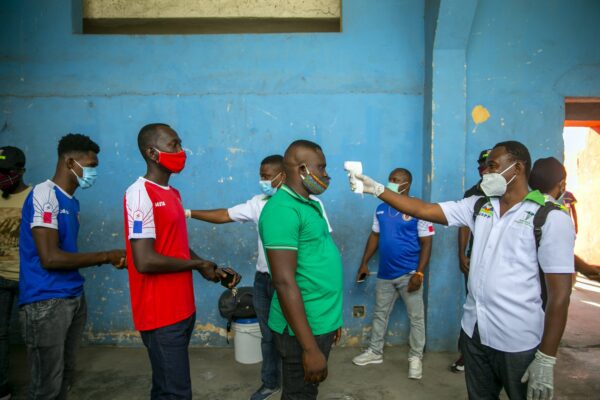
Research by Vanderbilt’s Latin American Public Opinion Lab found that in Haiti, the COVID-19 pandemic rallied support for the incumbent administration, even though the public’s commitment to it and to democracy itself was weak before the pandemic. The paper, published in PLOS ONE, was co-authored by Noam Lupu, associate professor of political science and associate director of LAPOP, and Elizabeth J. Zechmeister, Cornelius Vanderbilt Professor of Political Science and director of LAPOP.
Other LAPOP surveys have found that commitment to the most fundamental tenet of democracy—regular elections—has been wavering. The COVID-19 pandemic occurred during that shift, which could have created fertile conditions for decreased support for democracy in a country like Haiti, where there is high corruption and weak rule of law.
“The majority of public opinion research related to the pandemic has focused on developed, wealthy democracies. So we wanted to know—how might a monumental health crisis shape attitudes in less developed contexts, like Haiti?” Lupu said. “Our goal was to assess whether and how the introduction of a new crisis—the COVID-19 pandemic—would shift public opinion toward the president, elections and democracy. Does the public lash out against the incumbent government, does it rally around the executive as if the pandemic were an act of war, or does it shift in deference to authority and authoritarian principles?”
To answer these research questions, the authors conducted a phone survey of a nationally representative sample of Haitians from April 23 to June 10, 2020, with 2,028 voting-age respondents. The questionnaire was structured such that half the respondents were asked 10 questions about views on the pandemic and then a set of questions on various topics that included the issues of interest: presidential approval, support for postponing elections, tolerance for coups and support for democracy. The other half of the respondents answered in the reverse order, being asked the second set of questions before being asked the 10 questions about the pandemic.
They found that considering the pandemic first modestly boosted responses that indicated presidential approval and intentions to vote for the incumbent president. This result shows that a rally effect can occur even in the most unlikely of places—an unstable context in which the president is struggling to maintain order and support. They did not find data supporting the notion that the onset of the pandemic eroded democratic attitudes, even in an unstable context like Haiti.
The authors also found evidence of increased deference toward the executive’s authority, which may be an under-explored outgrowth of rally dynamics. When asked if the president ought to be given leeway to postpone elections in the face of a major health crisis, like the COVID-19 pandemic, the vast majority of Haitians agreed, and they were even more likely to do so if they answered the set of pandemic questions first.
“Then-Mayor of New York City, Rudy Giuliani, floated postponing his departure from office while riding a wave of approval following the 9/11 terrorist attacks, for example,” Zechmeister said. “However, we find no evidence of a broader shift in democratic attitudes. Our data show that support for a democratic form of government held steady, and that the onset of the pandemic does not appear to have bolstered a broader set of authoritarian attitudes in Haiti. Our results are reassuring for those who worry that the pandemic will inevitably undermine democratic values.”